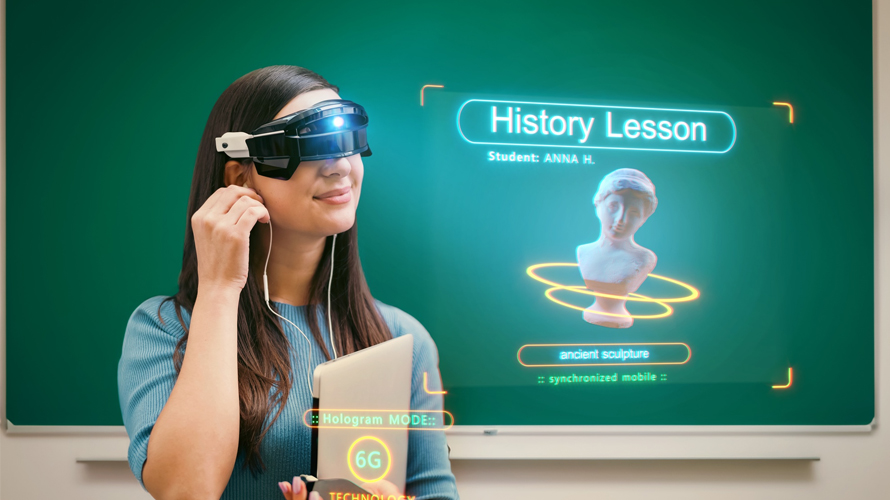The metaverse emerged as a convergence of virtually enhanced physical reality and persistent virtual spaces, creating a collective digital environment where users can interact, learn, and collaborate. Initially popularized through gaming and social platforms, the metaverse has rapidly evolved into a versatile digital landscape with vast potential across various industries. In the digital age, the metaverse is becoming increasingly important as it leverages advancements in virtual reality (VR), augmented reality (AR), and artificial intelligence (AI) to offer immersive and interactive experiences.
In the education sector, the metaverse holds the promise of revolutionizing traditional learning paradigms. By transforming school lessons, fostering remote collaboration between teachers and students, enhancing vocational training, and creating new avenues for lifelong learning, the metaverse offers unprecedented opportunities for educational advancement. Metaverse Developers in Kochi are at the forefront of creating these innovative educational solutions.
Academic studies have shown that virtual reality (VR) can significantly improve various learning outcomes, including comprehension, knowledge retention, student engagement, attention span, and motivation. Furthermore, metaverse technologies can help address geographic disparities, enabling students to learn from educators and institutions that would otherwise be out of reach.
How Metaverse Change Education Industry
Immersive Learning Experiences
Traditional education methods often struggle to engage students effectively. The metaverse offers an immersive learning environment that can make education more interactive and engaging. Imagine history lessons where students can walk through ancient civilizations, science classes where they can explore the human body in 3D, or geography lessons where they can virtually visit different parts of the world. These immersive experiences can help students understand and retain information more effectively.
Personalized Learning Paths
In the metaverse, education can be tailored to individual learning styles and paces. AI-powered avatars and virtual assistants can monitor a student’s progress, provide personalized feedback, and adapt learning materials to suit their needs. This level of personalization can help address the diverse learning needs of students, ensuring that no one is left behind.
Enhanced Collaboration and Social Interaction
The metaverse can facilitate better collaboration among students. Virtual classrooms can bring together students from different parts of the world, enabling cross-cultural exchanges and collaborative projects. Students can work together in real-time on virtual whiteboards, share resources, and engage in group discussions, all within a 3D virtual environment. This can enhance social interaction and teamwork skills, which are crucial for their future careers.
Access to Global Resources and Expertise
The metaverse can break down geographical barriers, providing students access to global resources and expertise. Renowned educators, industry experts, and guest speakers can be invited to virtual classrooms, making high-quality education more accessible. Students can also explore virtual libraries and laboratories equipped with the latest tools and technologies, regardless of their physical location.
Lifelong Learning and Skill Development
The metaverse can support lifelong learning and continuous skill development. Professionals can use the metaverse to attend virtual training sessions, workshops, and conferences. This can help them stay updated with the latest industry trends and acquire new skills without interrupting their work schedules. The flexibility and convenience offered by the metaverse can make continuous education more accessible and appealing.
Inclusive Education
The metaverse can play a significant role in making education more inclusive. Students with disabilities can benefit from tailored virtual environments that accommodate their needs. For instance, virtual reality can assist students with mobility issues to explore environments that would otherwise be inaccessible. Additionally, the metaverse can provide support for students with learning disabilities through customized learning experiences and tools.
The metaverse holds the potential to transform the education industry by creating immersive, personalized, and accessible learning experiences. As technology continues to advance, educators and institutions must embrace the opportunities offered by the metaverse, including Metaverse Events Integration Services in Kochi, to enhance the quality and reach of education. By doing so, we can prepare students for the challenges of the future and ensure that education remains relevant and effective in the digital age.
